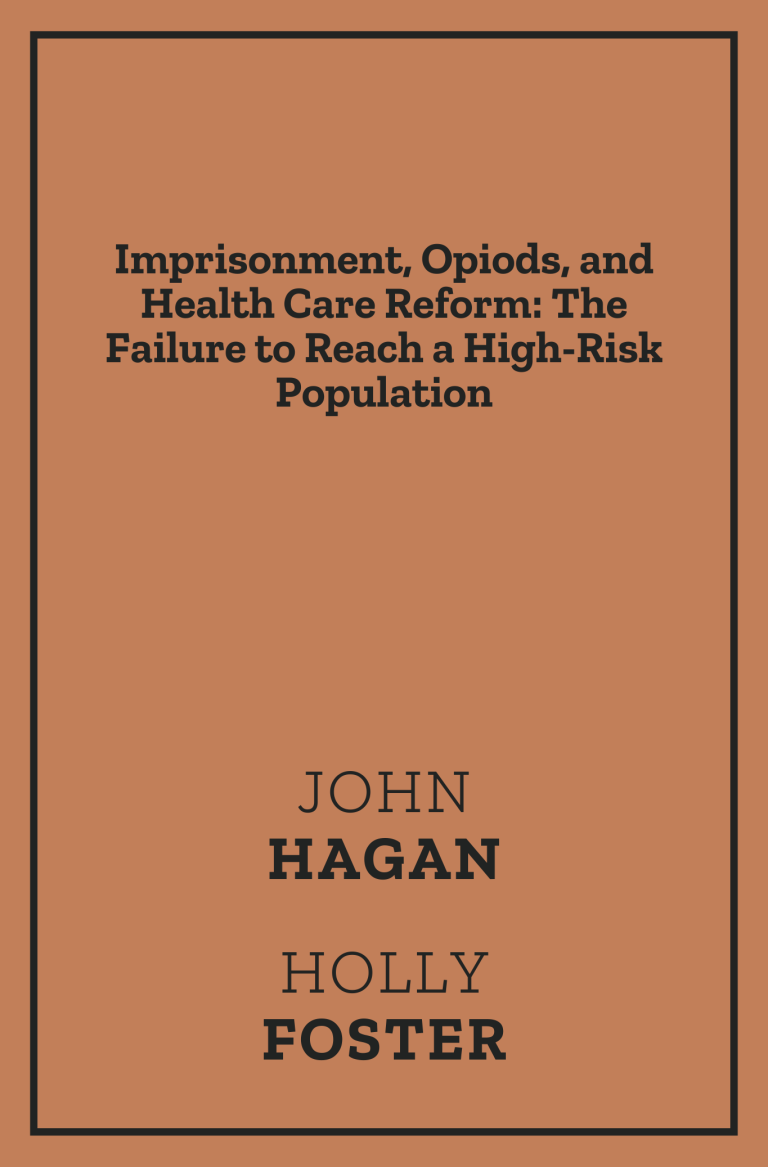The 2014 National Research Council report on American incarceration optimistically anticipated the Affordable Care Act (ACA) would be “a turning point in the nation’s health care, and … will provide unprecedented access to care for many people being released from correctional facilities.” However, the ACA was not designed to proactively respond to risks associated with prisoner re-entry into society. Our overarching hypothesis is that unmet health needs among previously incarcerated adults can be more fully understood by analyzing how un-prescribed use of drugs, such as opioids, is associated with economic and health problems and health care un-insurance that in turn results in exclusion from needed health care services.
Using several waves of the National Longitudinal Study of Adolescent to Adult Health conducted before and after the passage and implementation of ACA, our analysis indicates that the above risk factors nearly fully mediate the association between previous incarceration and failure to receive needed health care. We argue that these factors are likely intensified by a reactive approach to health care reform that not only fails to cover many former prisoners, but also is lacking in sufficient outreach programming, and as such is insufficient for adults with health problems and limited economic resources – especially those using un-prescribed opioids. Future work should address the capacity of more proactively organized public health programs to expand coverage to previously incarcerated populations – including un-prescribed opioid users – and thereby reduce their health risks and vulnerability to repeated exposure to law enforcement surveillance and criminal punishment.

